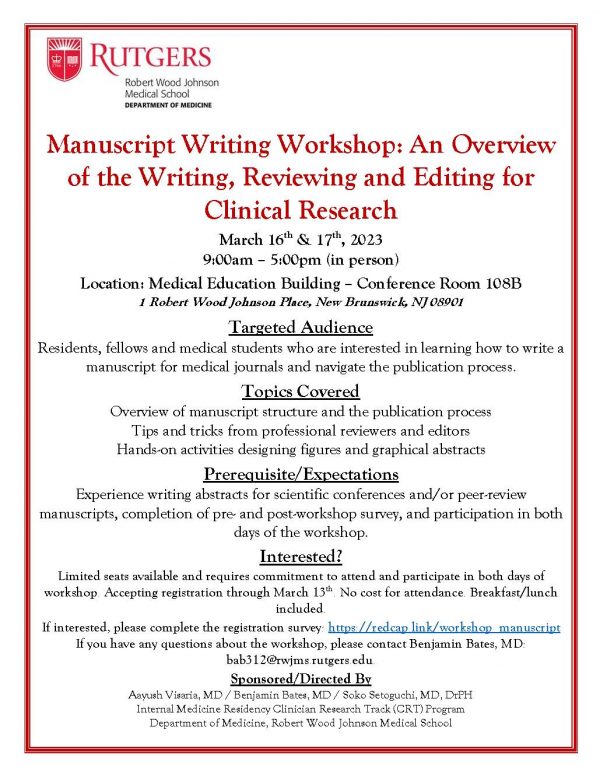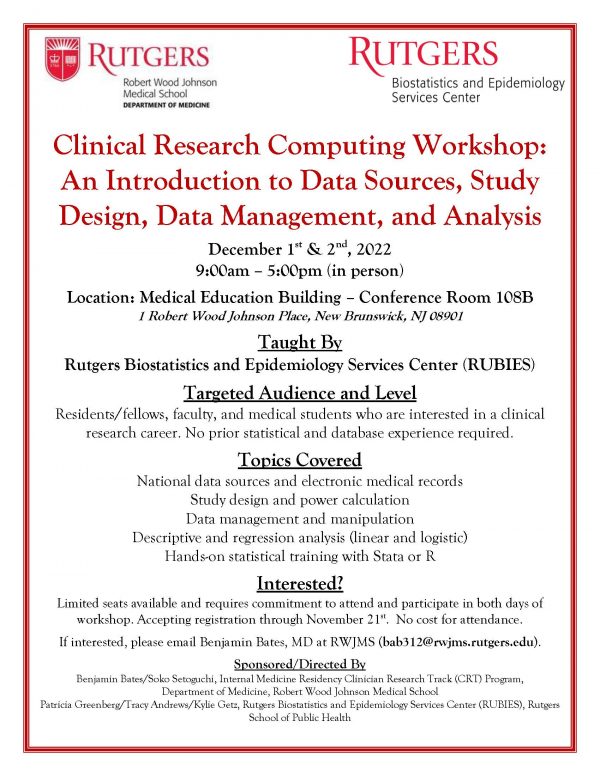Clinical Research Track
Goal
The Clinician Research Track (CRT) was established to provide selected and highly motivated residents in the residency program with opportunities for research that include skill-building didactic and group sessions with mentored research experiences. Over the past five years, our residents have used the CRT’s hands-on, mentored education as a steppingstone to advance their clinical and research careers.
Curriculum
The curriculum consists of:
- Didactic and group sessions (2 hour sessions every 5 weeks)
- Rigorous, clinically-focused workshops (2 days per workshop, each once per year). Ongoing workshops include clinical data analysis, systematic review/meta-analysis, and manuscript writing.
- Mentored research with protected research elective weeks (minimum of 4 weeks and maximum of 8 weeks per year).
Didactic Sessions
Selected topics in clinical research will be provided as didactic sessions (in person session and video recording) every 5 weeks throughout the year (July-June)
| Topic | Instructor |
| Introduction and Overview of Clinical Research study designs | Brian Strom |
| Bias and Confounding | Tobias Gerhard |
| Introductory biostats from a clinical researchers perspective | Daniel Horton |
| Clinical research leveraging big data | Soko Setoguchi |
| Means and methods of primary data collection | |
| Intro to ‘omics’ | Fred Wondisford |
| Clinical trials | Jeffrey Carson |
| Cost and cost effectiveness analyses | Laura Pizzi |
| Introduction to mixed methods research | Benjamin Crabtree |
| Introduction to translational research | Reynold Panettieri |
Group Sessions/Hands-on Sessions
All clinician researcher track residents will meet for 2 hours every 5 weeks for a group discussion session. The group session will provide a hands-on learning experience in research related topics including literature search, IRB navigation, data sources, data management and analysis, abstract writing, effective scientific presentation, and manuscript writing while providing opportunities for presentations and discussion of individual research projects among peers, researchers and research mentors.
Workshops
Each trainee in the Clinician Research Track will participate in workshops designed to advance their knowledge and skills in clinical research. Currently, we offer three workshops each year: (1) clinical data analysis workshop; (2) systematic review and meta-analysis workshop; (3) manuscript writing workshop. Each workshop provides a detailed review of the subject and are designed to be educational for trainees of all levels. Below are example flyers from the most recent workshops. New workshops are in development and requests are always appreciated!
Mentored Research
Each resident in this firm will be guided and matched to a research mentor based on his or her research interests. The clinician researcher track resident will be guided by his/her mentor to identify projects that will be supported by their mentor’s research program and will conduct hands-on research projects that are likely to yield high quality research for publication as abstracts/manuscripts. The residents will utilize 4-8 elective weeks each year as research electives to conduct mentored projects. In addition, each resident will be matched to a Masters student in Biostatistics at the Rutgers School of Public Health (RSPH). This student will collaboratively work with the resident under the guidance of their statistics mentor at RSPH to support data analyses for residents’ projects.
Pre-requisites
- Clinical research experience
- Plan to lead and collaborate in clinical research durng and following residency
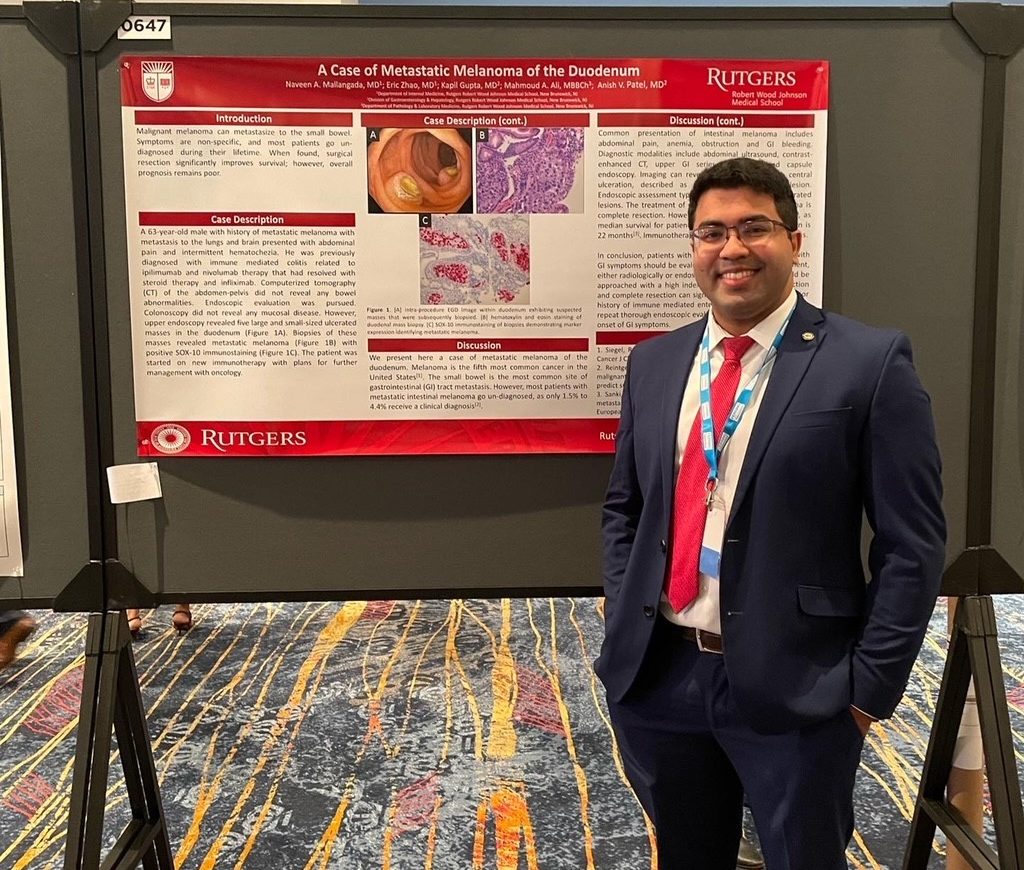
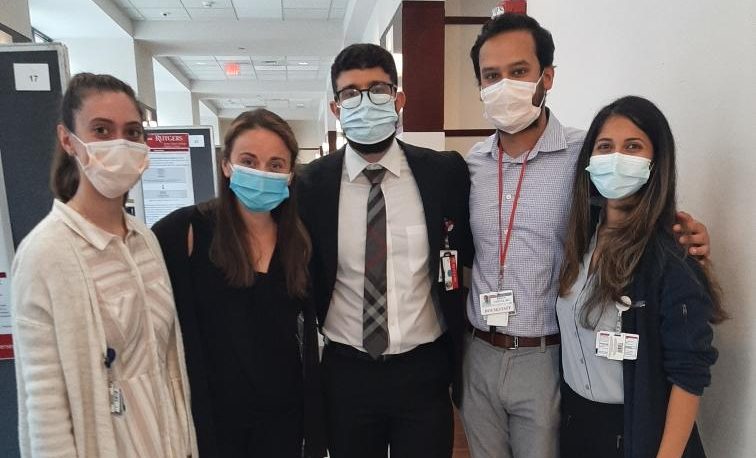
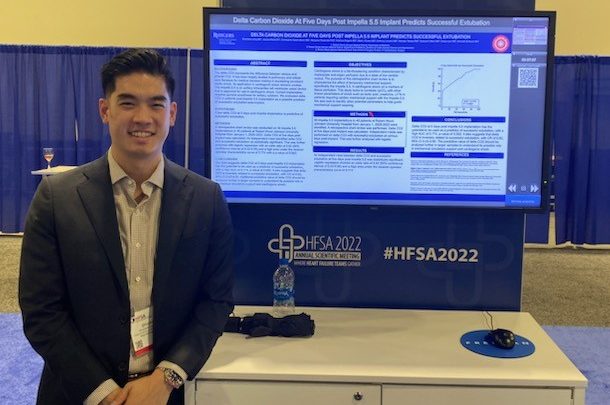

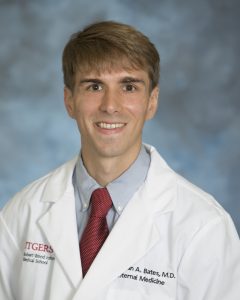
RESEARCH TRACK DIRECTOR
Soko Setoguchi, MD, DrPH, a cardiologist by training, board-certified general internist, and epidemiologist, is Associate Professor of Medicine and Epidemiology, Rutgers Robert Wood Johnson Medical School (RWJMS) and at Rutgers School of Public Health. She serves as the Director of Clinical Research Education in Department of Medicine. She is also the new Co-Director of the Master of Science in Clinical and Translational Science (MS-CTS) at Rutgers School of Graduate Studies. After her medical school and training in Cardiology in Japan, she completed her doctoral training in epidemiology at the Harvard School of Public Health. She was on the research faculty in the Division of Pharmacoepidemiology at Brigham and Women’s Hospital/Harvard Medical School and at Duke Clinical Research Institute before she completed US residency training in Internal Medicine at University of North Carolina Hospital and then RWJMS. Dr. Setoguchi is an international leader in the field of pharmacoepidemiology, the study of the health effects of medications and other medical products in populations. She has authored more than 120 peer-reviewed papers in leading medical journals and has been funded by both federal and non-federal sources for her pharmacoepidemiology research program. Her research uses large databases to perform health services and outcomes research and comparative effectiveness research for medications and implantable medical devices in patients with chronic disease.
RESEARCH TRACK, ASSISTANT DIRECTOR
Benjamin Bates is a general internist and board certified in Internal Medicine. After Internal Medicine Residency, he completed a two-year research fellowship in cancer pharmacoepidemiology and health services research. His research focuses on the treatment and health outcomes of patients with cancer. He has received support from the New Jersey Commission on Cancer Research, the Robert E. Leet and Clara Guthrie Patterson Trust Mentored Research Award, and the National Cancer Institute to advance his career as a physician scientist focused on the overall care and health outcomes of patients with cancer. Most recently, he received the Cancer Institute of New Jersey Cancer Survivorship Research Centers Pilot Award Program Cancer Center Support Grant (P30CA072720) to support research on primary care involvement during and following cancer treatment. His manuscripts have been accepted into Journal of Clinical Oncology, Annals of Internal Medicine, and Circulation: Cardiovascular Quality and Outcomes, and he has presented his research at national and international conferences. He was selected as an Editorial Fellow for the ASCO Journals Editorial Fellowship (2022-2023).
More information about his experience as an editorial fellow can be read here: Bates’ ASCO Journals Editorial Fellowship Experience.

